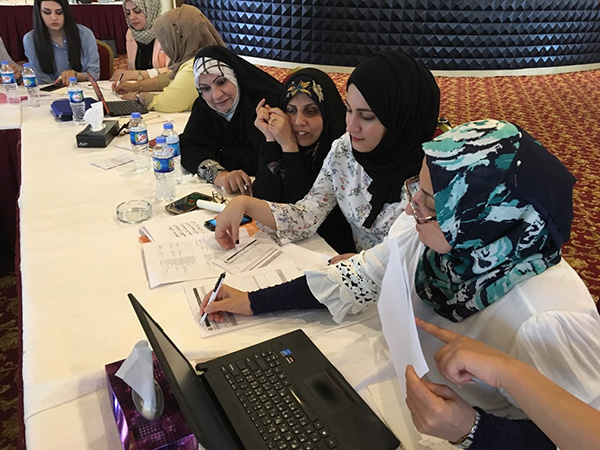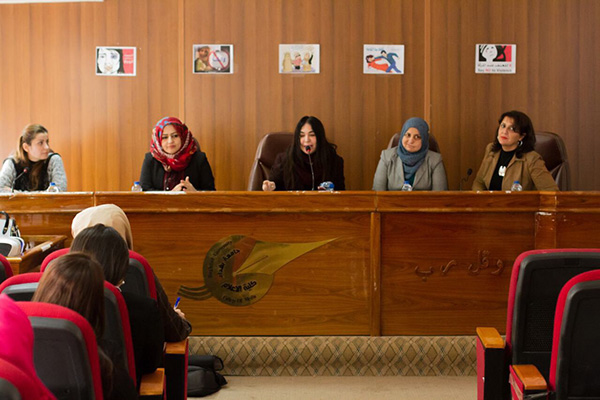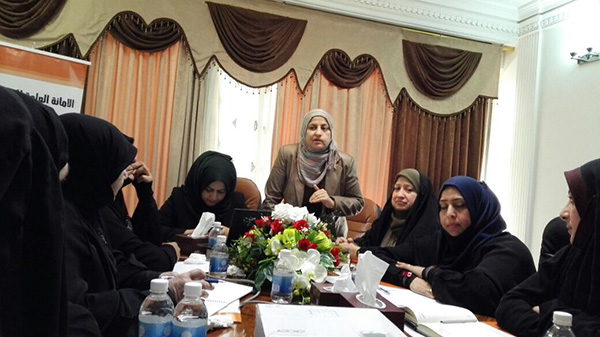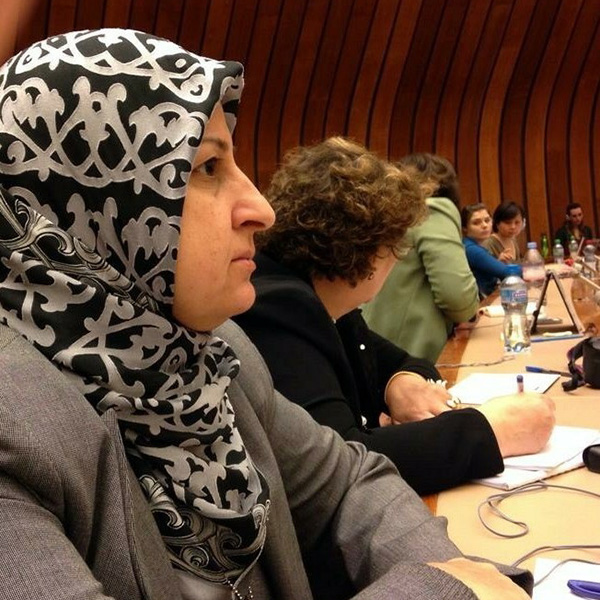During the ’16 Days of Activism against Gender-Based Violence’, PAX highlights the groundbreaking work of Amal AI-Lami, program manager for the Iraqi Al-Amal Association, one of PAX partners in the programme ‘Engendering the Transition to Peace and Security’ in Iraq.
PAX sat down with Amal, who was also a member of the first team that worked on monitoring the implementation of UN-Resolution 1325 in Iraq, for a conversation about gender roles, inequality in the courts, the absence of protection and reporting mechanisms for sexual and gender-based violence with police, and the influence of ISIS and social media on women rights in Iraq.
Amal, what forms of gender-based violence do women in Iraq encounter?
The most common form of sexual and gender-based violence (SGBV) is physical violence. This has exacerbated when ISIS took over many governorates in Iraq. Women now face many forms of violence: from harassment to rape. Physical violence has become part of the culture in Iraq: men hitting their wives now occurs all over Iraq, not only in the regions where there is conflict. Among tribes that live in the South and Middle of Iraq it is common that communities keep SGBV “undercover”: they do not want anyone in the police to know about it. Another form of gender-based violence is verbal violence and inequality in the law and in court. The penal code (the law that deals with crime and offenses, PAX) in Iraq discriminates between men and women.
Can you name a recent example of a form of SGBV?
Yes, recently the parliament discussed a new law that would change the personal status code, which deals with family matters such as marriage and divorce. (Amongst others, the law would lower the minimum age for marriage to nine years only, PAX). We carried out big campaigns to prevent a yes-vote for this law, because it would violate principles of equality. It would reinforce sectarianism in the region, and women and girls would lose many of their rights.

Is it possible for women to get legal protection?
In general, this is hard because the Iraqi law basically does not criminalise domestic violence. There is no law against domestic violence, so women have no law to rely on when they go to court. We are working on a new law against domestic violence. The law is in parliament. We have had a first and second reading of the proposal, and are waiting for the vote. If this law gets voted for, it will mean a huge improvement in the protection of women rights. The law will provide safe centres for women, and will support women that have filed a complaint.
What does the programme with PAX do to fight against SGBV?
We are strengthening the campaign for the law against domestic violence and we work to increase awareness and knowledge on SGBV for, amongst others Iraqi police and judiciary but also citizens from the communities. With increased awareness and knowledge on these gender-related issues, institutions can enhance the tools and the means to fight against SGBV: currently, Iraqi institutions lack gender-sensitive capacities.

Are there any positive developments in the fight against sexual and gender-based violence?
Yes, I feel that there is a higher awareness in society of SGBV. I see this in all provinces, not just in Baghdad. We have witnessed this in the campaign against the law on early marriage that I spoke about earlier. Social media play an important role in this regard: they have impact and can create awareness. In addition to this, civil society organisations have an important role to play
Where do you get your inspiration from?
First of all: I am a women and I want to live in a safe environment. Maybe I will experience SGBV one day. I seek to defend the survivors of SGBV and to protect them so that they won’t become victim for the second time. As a woman, I have the right to live in a free and safe environment.

What is the most important thing that you want to teach women about themselves and society?
We must enhance awareness among women of their rights and we must teach them how they can live freely, and how to stand up for their rights. There were moments in my life that I felt weak and marginalised, but I have found the opportunity to stand up for my rights. I then decided that I also want to stand up for other women that are in weaker positions. Women in my country need to be protected and need to feel safe.
From November 25 through December 10, PAX joins the international community for the 16 days of Activism against Gender-Based Violence Campaign. A time to galvanize action to end violence against women and girls around the world.
See also the PAX programme Engendering the Transition to Peace and Security in Iraq
Read more about PAX work on Gender, Peace & Security.
Interview by Myrthe Toppen, programme officer Iraq at PAX.
All photos were taken during a workshop of the ‘Iraqi Women Network’.




